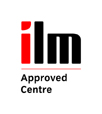10 Top tips for Search Engine Optimisation!
Google Professional Secrets – 10 components of SEO you need to consider
We thought we’d provide a ‘starter for 10’ with 10 top Google Professional secrets. These elements must be addressed if you’re serious about finding people who are already looking for you.
However you must be aware, that SEO is both an art and a science with over 150 factors that influence how your websites pages are ranked by Google and the major search engines.
It’s about having a ‘joined up approach’ that is creative and consistent. It’s not about the tools you use, but how you use them that counts.
1. A Keyword Rich Domain Name
With new clients (and new websites), we always explore the opportunities that present themselves to include core keywords. You might need to be creative in how you do this (something we think we’re good at!). Search engines give strong ‘weighting’ to keyword rich domains.
This is also a tactic we use when developing microsites for our clients. In fact many have multiple microsites and domain names to target ‘niche’ markets within their sectors.
Enhancing our clients channels to market across major search engines…helping them to be seen and heard.
How do you discover what keywords? Through rigorous keyword research.
2. Title Tag
Google loves Title Tags. They’re considered to be a powerful influence on your on-page optimisation. We see many websites that have the same title tags for every page…this is a big mistake.
Make sure you plan a themed, but unique approach with your title tags. Don’t spam them – you’ll simple dilute density and prominence.
3. Heading Tags
Think about how you would write a report. You have a main title (think your title tags). Next you’d have headings and sub headings. These would be your heading tags. H1, H2, H3 tags for headings and subheading influence ranking of web pages.
Helping the search engines understand what the page is about. Ensure that each pages is on message, making sense to both people reading it and the ‘search engine spiders’.
4. SEO Copywriting.
Some ‘buzz’ words - Core Keywords and Semantically linked phrases. Google has invested heavily in understanding how people put words, sentences and paragraphs together. In the old days it was simply ensure that keywords had a certain density within the on page content.
Whilst keyword density and where they are placed in relation to a page is important. It is now more important than ever to ‘write naturally’. If you’re not careful, Google’s ‘spiders’ will pick up keyword stuffing and act accordingly.
Therefore how you find and include ‘semantically’ linked phrases influences trust and integrity within the search engines.
You’ve been warned!
5. Bold, Strong and Emphasis Tags.
This benefits both rankings and the users reading the page (think how a person scans a page). By highlighting keywords within specific pages, this can enhance some weighting and prominence on page.
However be careful not to overdo it as this can cause too much friction on the page for the user.
6) Website Hierarchy and Internal Navigation.
Two things to consider. How easy and obvious is it for people to move around your website has an impact on how long they stay on the site – Very important.
How easy is it for Google and the major search engines to see all of your important pages within your website? Google ranks pages not websites.
The Search engine spiders move around your website through your navigations and internal links. If they can’t get to it and read it…they can’t rank it. Use simple text navigations and site maps.
We have some other creative solutions that have proven very successful for our clients… but they are our secret!
We believe the old adage ‘keep things simple stupid’ bears true here.
7) Keyword Rich Internal Links.
Use your sites main keywords in the anchor text when linking to pages within your site. Google can provide extra weighting to pages that have this. Another tip is to consider the words around it.
8) Flash – use it wisely.
It’s believed that search engines have recently starting to be able to ‘read’ flash. However it’s still very early days yet.
An entire website does not need to be built in flash (or frames for that matter!). Therefore makes sure you clear on your reason for using it and plan accordingly.
9) Fresh Content helps to keep you website ‘alive’
Google visits you site and reads xx amount of pages each time. How often they visit you is influenced by how you build trust and integrity with the search engines.
Key method and top tip! – keep your site updated, add fresh content and be informative and useful to your target audience.
What’s more – don’t have duplicate content, and try not to ‘copy and paste’ from other websites. Try to keep pages content unique.
10) Link Building – An Absolute must.
Keyword focused, inbound links from other relevant and trusted websites will influence your website rankings. They need to appear to have happened ‘naturally’ and over time. With the keywords and semantically linked phrases within ‘link text’ or anchor text of you inbound link.
Consider directory submissions, posts on forums; get involved with blogs, e-PR, article submissions, offline PR and other tactics.
Link building campaigns are crucial for long term SEO success. Ignore it at your peril
Want to know more, need some help?
Getting to the top of Google is both a science and an art. It not the tools you use, but how you use them that makes the difference in finding creative solutions that work.
If you’d like to know more and discuss how we can help you be found by the people already looking for you…simply get in touch.
Don’t be invisible!
Bryan Adams, director ph-creative.com
Our business coaches are here to help. Find out more about our business coaching services or email us at [email protected] to arrange a chat with one of our coaches.





